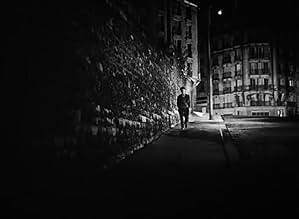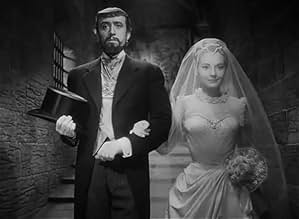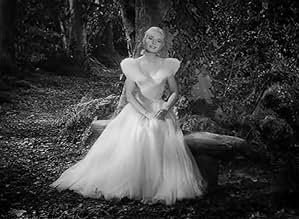Juliette or the Key of Dreams is seldom mentioned in discussion of Marcel Carne's filmography. However, the film works as an attempt to make a modern, adult fairy tale. One of the other reviewers referenced Cocteau's Beauty and the Beast, which is a fair comparison. True, Juliette is not in the same league as the Cocteau film, but, then, few films are.
The film begins in the real world. Michel is in prison. At first, the viewer is uncertain of his crime. What is clear is that he is lonely and heartbroken. One of the other prisoners makes the comment that he could escape in his dreams. This is what Michel does. Most of what follows is one long dream. Michel is searching for his love Juliette. He goes to a village of forgetfulness. Everyone who resides in the village eventually loses his or her memory. Juliette has lost hers as well, but something stirs in her when she sees Michel. Unfortunately, a rich count who resides in an empty castle also has eyes for Juliette. In other words the viewer is given a hero, a quest, a princess, a villain, and a castle, the items of a fairy tale.
Juliette or The Key of Dreams contains some great scenes. One of these is a celebration where fortune tellers offer to read the villagers' pasts. A salesman sells mementos from vacations never taken and memories never made. As the film goes on, the viewer realizes that, by dreaming, Michel is not just trying to escape from prison but also to escape from the entire circumstances that separated Juliette from him. Michel's dream is much brighter than his reality, but, of course, no one can dream forever.
Juliette or the Key of Dreams should be better known. It features an intriguing premise, good actors, and a moving ending. Pleasant, that describes the whole viewing experience.






























